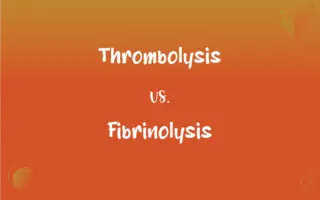Scent vs. Sent: What's the Difference?
Edited by Aimie Carlson || By Janet White || Published on February 16, 2024
"Scent" refers to a smell or odor, while "Sent" is the past tense of "send," meaning to cause to go or to be taken somewhere.

Key Differences
Scent is a noun or verb relating to the sense of smell. It describes a distinctive smell, especially a pleasant one, or the act of detecting or imparting an odor. Sent is the past tense and past participle of the verb "send," which means to cause or enable someone or something to go somewhere. Both words are homophones in English, sounding the same but having different meanings and spellings.
In usage, scent can refer to a natural odor emitted by living things or an artificial fragrance added to products. It is also used metaphorically to indicate a trace or hint of something. Sent, on the other hand, implies the action of dispatching an item, message, or individual from one place to another. While "scent" deals with olfactory experiences, "sent" involves the action of transmission or dispatch.
As verbs, to scent something means to impart a specific smell to it or to detect a smell. The verb form is less common but still used in contexts like hunting or perfumery. Sent is exclusively a verb form, and it does not have a noun form. It is a simple and straightforward representation of the act of sending in the past.
The word scent can be used in various contexts, from describing a perfume to indicating a trail picked up by animals. It is closely associated with nuances and subtleties. Sent is functional and practical, often used in business, communication, and logistics. It denotes a completed action and is frequently found in correspondence and reporting.
In literature and poetry, scent often carries symbolic or thematic significance, invoking memories or emotions. Sent is more utilitarian in literature, used to advance the plot by showing the movement of objects or information from one character or location to another. Both words, while simple, enrich the language by serving different purposes.
ADVERTISEMENT
Comparison Chart
Part of Speech
Noun and verb
Verb (past tense)
Meaning
A smell or odor, especially a pleasant one
Past tense of "send," to dispatch or transmit
Usage Context
Perfumery, nature, descriptive writing
Communication, logistics, narratives
Association
Olfactory senses, subtlety, and emotions
Action, movement, and completion
Grammatical Role
Subject or object in a sentence; can be a verb
Verb form indicating past action
ADVERTISEMENT
Scent and Sent Definitions
Scent
To impart a particular odor to something.
She scented her letters with rose perfume.
Sent
To have dispatched a message or communication.
He was sent an email with the instructions.
Scent
A trace or hint of something almost imperceptible.
There was a scent of mystery in his words.
Sent
To have directed or required someone to go somewhere.
The manager sent him to the New York office for the meeting.
Scent
A perfume or cologne.
He wore a scent that reminded her of summer.
Sent
To have caused something to be transmitted through a medium.
The signal was sent through the satellite.
Scent
A distinctive, often pleasant smell.
The scent of fresh flowers filled the room.
Sent
Past tense of send, meaning to have caused to go or be conveyed.
She sent the package yesterday.
Scent
To perceive or detect a smell.
The dog scented the trail of the fox.
Sent
To have arranged for the delivery of something.
They sent flowers to her office as a surprise.
Scent
A distinctive, often agreeable odor.
Sent
Past tense and past participle of send1.
Sent
Simple past tense and past participle of send
Sent
A subdivision of currency, equal to one hundredth of an Estonian kroon.
Sent
Obsolete form of scent
Sent
100 senti equal 1 kroon
Sent
Caused or enabled to go or be conveyed or transmitted
FAQs
Is 'scent' a noun or a verb?
'Scent' can be both a noun and a verb.
Is 'sent' only used as a verb?
Yes, 'sent' is exclusively a verb form.
What is an example of 'scent' used in a sentence?
"The kitchen had a wonderful scent of baking bread."
Can 'scent' be a verb?
Yes, it can mean to impart or detect a smell.
Does 'sent' have a noun form?
No, 'sent' does not have a noun form.
Can 'scent' be used metaphorically?
Yes, 'scent' can imply a hint or trace of something.
Can 'scent' refer to artificial smells?
Yes, 'scent' can refer to both natural and artificial odors.
Can 'scent' be used in hunting contexts?
Yes, 'scent' is often used to refer to a trail or track detected by animals.
What does 'scent' mean?
'Scent' refers to a distinctive smell, especially a pleasant one.
What does 'sent' mean?
'Sent' is the past tense of 'send', meaning to have caused to go or be taken somewhere.
Can 'scent' have negative connotations?
Sometimes, 'scent' can imply an unpleasant or overpowering smell.
How is 'sent' commonly used?
'Sent' is often used in the context of sending messages, parcels, or people.
Is 'sent' used in formal communication?
Yes, 'sent' is commonly used in formal and business communications.
How does 'scent' differ in usage from 'sent'?
'Scent' relates to olfactory experiences, while 'sent' pertains to the action of dispatching.
What is a sentence example for 'sent'?
"The invitations were sent out last week."
What is the role of 'scent' in literature?
'Scent' often symbolizes memories, emotions, or themes in literature.
Is 'sent' straightforward in meaning?
Yes, 'sent' has a clear and direct meaning, indicating a past action of sending.
Are 'scent' and 'sent' homophones?
Yes, they sound the same but have different meanings and spellings.
About Author
Written by
Janet WhiteJanet White has been an esteemed writer and blogger for Difference Wiki. Holding a Master's degree in Science and Medical Journalism from the prestigious Boston University, she has consistently demonstrated her expertise and passion for her field. When she's not immersed in her work, Janet relishes her time exercising, delving into a good book, and cherishing moments with friends and family.
Edited by
Aimie CarlsonAimie Carlson, holding a master's degree in English literature, is a fervent English language enthusiast. She lends her writing talents to Difference Wiki, a prominent website that specializes in comparisons, offering readers insightful analyses that both captivate and inform.































































